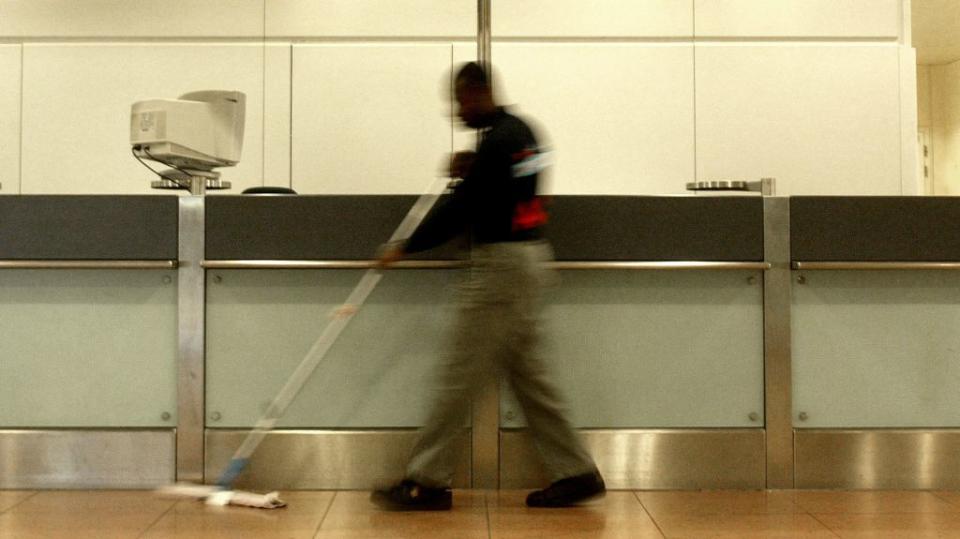The concept of “fissure” explains a lot of what’s wrong with the economy

There was a time if you looked around your office everyone was an employee of the company’s whose name was on the door. Now, odds are the person you call for tech support, the person at the front desk, and the cleaning staff all work for someone else, namely a firm that supplies contractors to companies like yours. This is known as workplace fissure.
Research by economists Larry Katz and Alan Krueger has explored the trends in alternative work arrangements like these (pdf). They estimate that non-standard employment (gig work, temp work, contractors) accounted for a around 10% of American workers between 1995 and 2005, but grew to some 16% of American employment in 2015. Much of the increase is attributable to “workers provided by contract firms.”
Fissure can explain many of the things that people worry about when it comes to the economy. In the past, companies couldn’t get away with paying a janitor that much less than the CEO. A janitor employed by a big bank might make $60,000 a year. Now, if the bank hires cleaners through a contractor, those people work for a firm full of other cleaners, not one that’s a mix of bankers, traders, coders, and the like. As a result, there is less pressure to drive up their earnings, so they might make $30,000 instead.
Fissure might also explain why we see large income disparities between companies. If employees at some firms are exclusively highly skilled—a lean and mean tech company, for example—you’d expect them to show higher productivity, which generates higher profits, which allows workers to command even bigger paychecks. This phenomenon may explain about one-third of the increase in wage inequality since 1980.
Fissure can both be caused by income inequality as well as helping to exacerbate it. Technology has rewarded some workers more than others, mostly those with higher skills. At companies with a critical mass of highly productive, tech-enabled workers, compressing wages for all employees—both high- and low-skilled—becomes more expensive, creating an incentive to hire contractors for routine jobs and split the savings amongst a smaller group. Technology has also made certain jobs, in areas like administration and tech support, more standardized across firms, which makes it easier to contract out these jobs.
Short-term pressure to cut costs, such as during the global financial crisis, is not associated with greater workplace fissure, Krueger and Katz have found (pdf). This is a secular, not a cyclical, trend in the labor market.
Fissured employees aren’t necessarily unhappy. Surveys suggest many contracted workers are satisfied, or even prefer this disconnected work arrangement. On an hourly basis, they are paid more. But they also work fewer hours, so take-home pay is lower (and the benefits are usually worse). Before, all employees in a diversified workforce were paid for full days no matter what. More leisure time and flexibility might explain higher levels of job satisfaction among some contractors, although many others would prefer more regular hours.
Fissure may not be all bad. It increases efficiency by matching workers more precisely with the demand for their services. Alternatively, it could lead to economic and social polarization—contract workers may feel more disconnected from their work and community.
It is also not clear what the fissuring of labor markets will mean for economic mobility. The dream of working your way up from the mail room to the corner office is no longer viable if everyone in the mail room is a contractor.

Sign up for the Quartz Daily Brief, our free daily newsletter with the world’s most important and interesting news.
More stories from Quartz:

 Yahoo Finance
Yahoo Finance 